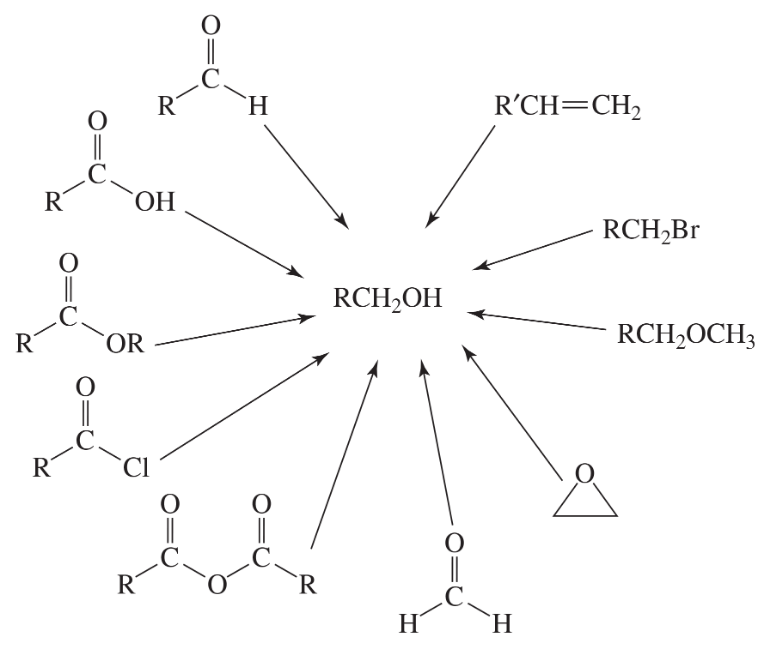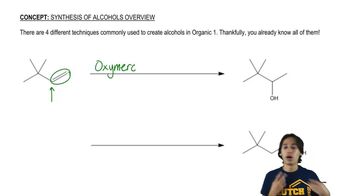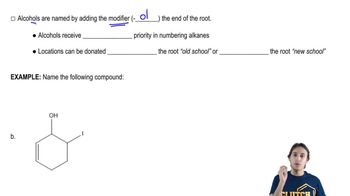Show how you would use Grignard syntheses to prepare the following alcohol from the indicated starting material and any other necessary reagents.
(e) benzyl alcohol (Ph–CH2–OH) from bromobenzene (Ph–Br)

 Verified step by step guidance
Verified step by step guidance Verified video answer for a similar problem:
Verified video answer for a similar problem:

